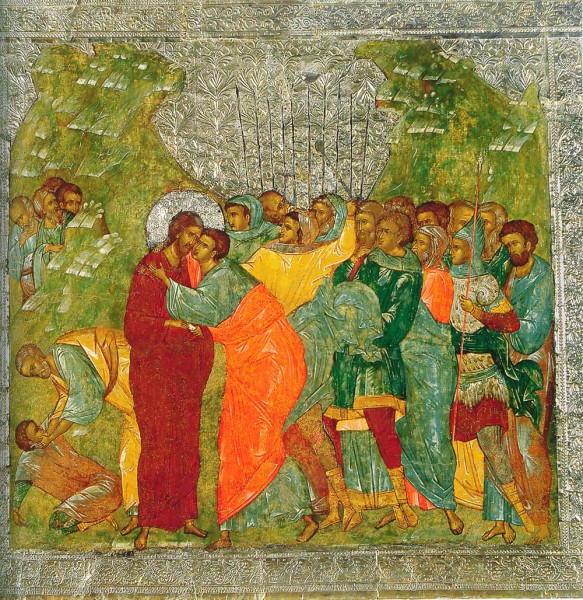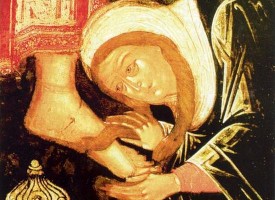Judas has always presented a problem for movie-makers. How do you create a believable character who carries out the greatest betrayal of all time? Some movies use a political motivation – this usually has Judas “accidentally” betraying Jesus in an attempt help Him politically. Others puzzle with him in other ways. The Scriptures are quite clear about the nature of Judas betrayal: he was a thief and he did it for money.
Then one of His disciples, Judas Iscariot, Simon’s son, who would betray Him, said, “Why was this fragrant oil not sold for three hundred denarii and given to the poor?” This he said, not that he cared for the poor, but because he was a thief, and had the money box; and he used to take what was put in it. (Joh 12:4-6 NKJ)
It’s fairly banal and prosaic. People do bad stuff for money all the time. The most common motive for betrayal of one’s country is – money. We often compromise our beliefs and practices for money, whether it is at work or elsewhere. If values cost us money, they quickly become too expensive for our taste. Righteousness is a luxury for most – one they can ill afford.
I also think that it goes far to explain Judas. No one usually starts out with full-blown betrayal – we have to work our way up to it. Every act of pilfering from the common fund was an act of betrayal, but easily justified. “It’s not much…I deserve it…I’ll put it back…”
A hymn from the Bridegroom Matins of Holy Week says, “Judas loved money with his mind (nous).” This declares a relationship that goes beyond the mere yielding to temptation. Judas became obsessed with money. Mammon was his God.
Thus, when the extravagance of the woman’s gift of an alabaster box of ointment poured over the feet of Jesus provokes Judas’ wrath, he was protesting on behalf of his God.
“Why was this fragrant oil not sold for three hundred denarii and given to the poor?”
It is very striking throughout the gospels how often the question of money comes up. Christ offers very little comfort on the topic. He generally says one of two things: share, or give it away.
He warns that we cannot serve God and mammon (money). We see the example of the Rich Young Ruler for whom money becomes a stumbling block – he cannot follow Jesus if in doing so he must give away his money.
What did Judas need money for? He traveled with Christ and the other disciples. From what we can tell, they bought almost nothing, living hand to mouth. Did Judas have a retirement plan? Was he building up his portfolio? But as the Church sings, “Judas loved money with his mind.” It’s a spiritual disease.
Who doesn’t love money? Perhaps our attitude towards money would change if we noted that the fingerprints of Judas are on every penny. Caesar (in all his guises) has his face displayed – but Judas goes to the very heart of it all. If you search your heart for the place where the desire for money resides – then you’ll find the face of Judas staring back.
Money is the anti-Eucharist. Like the Eucharist, it is a way of life. The Eucharist is the way of giving thanks. Money can only be marked by thanksgiving when it is shared or given away. Unless shared, it always becomes an end in itself – the opposite of giving thanks. And unless money is shared, becoming eucharistic, then it becomes the currency of betrayal, spent in the Gardens of our lives (Eden, Gethsemane).
Christ gives His disciples the Eucharist on the “night in which He was betrayed.” Judas loves money. Christ loves the Father – and all that the Father has given to Him. The bread that Christ gives is life, and life more abundantly. The bread of Judas is money – and it is death. God give us life!



















